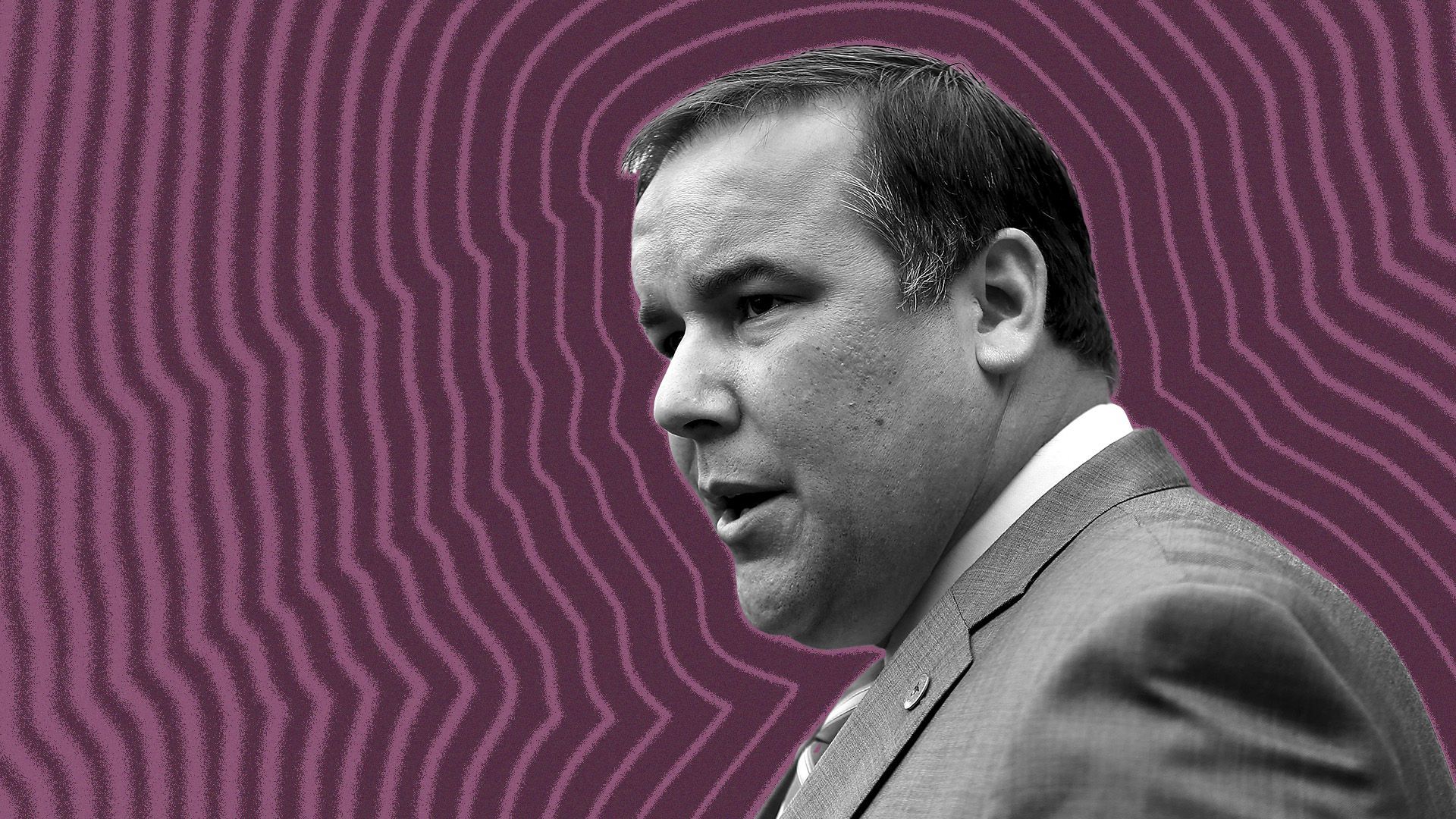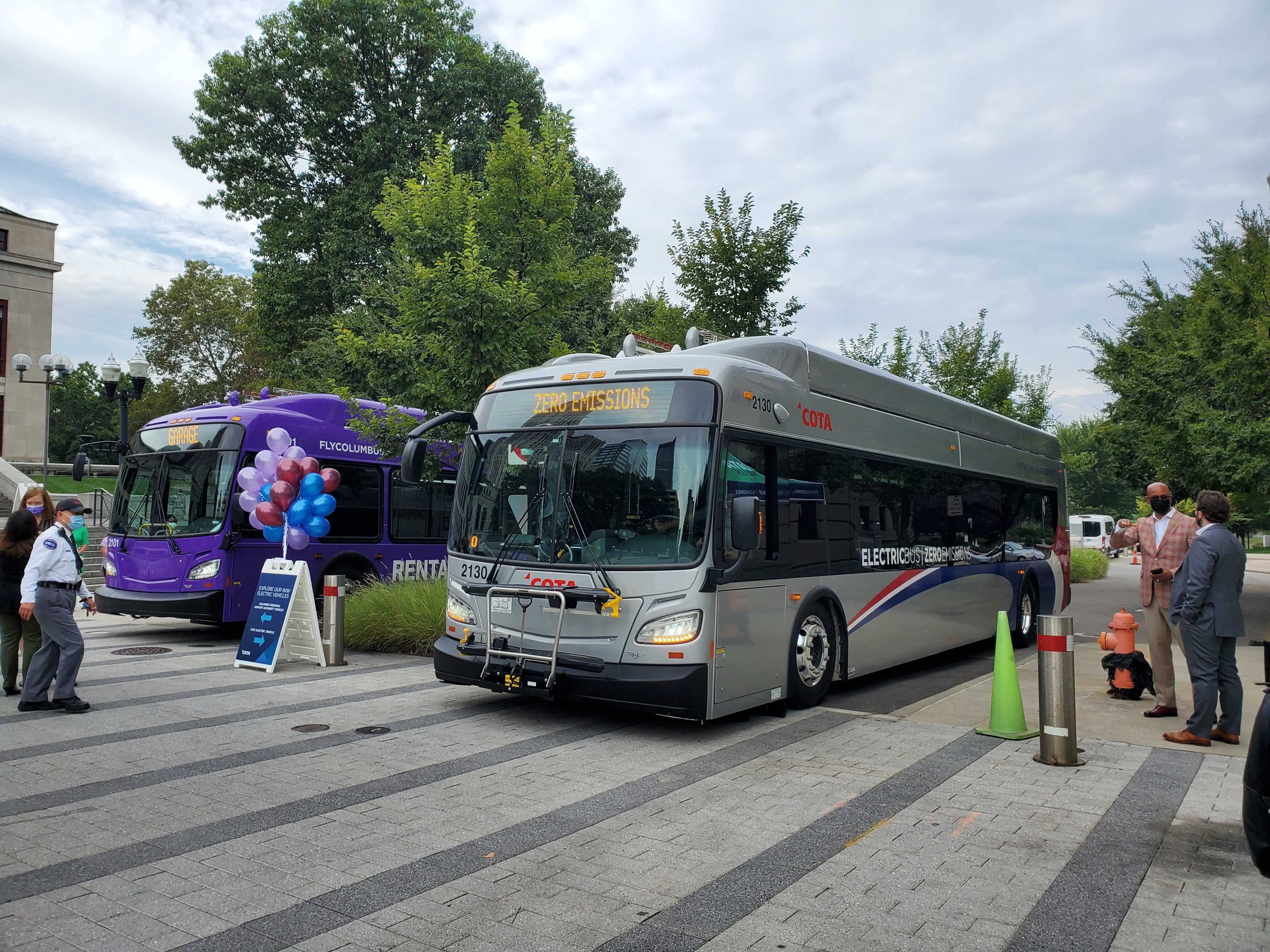State of the City: "Silicon Heartland" has challenges and a plan
Add Axios as your preferred source to
see more of our stories on Google.

Photo illustration: Allie Carl/Axios. Photo: Kirk Irwin/Getty Images
Columbus must put equity at the forefront to tackle the many challenges of a growing metropolis, Mayor Andrew Ginther emphasized in his State of the City address yesterday.
What's happening: In the 52-minute prerecorded presentation released on Tuesday, Ginther highlighted initiatives from last year and outlined the city's plans in 2022.
Some major themes from the address:
A comprehensive effort is underway to improve public safety and reform local policing
Threat level: The proliferation of illegal guns and a cycle of violence is contributing to a "devastating trend" of record homicide counts, the mayor contends.
- He outlined a number of violence intervention programs for both perpetrators and victims and highlighted new leadership among the Columbus' public safety ranks.
Placing blame: Ginther condemned "governors, legislatures and courts" for limiting the city's attempts to curb gun violence.
- The reference to unnamed governors comes a day after Gov. Mike DeWine signed a permitless concealed carry bill into law.
What's next: The city still seeks to be added to the federal Firearms Trafficking Strike Force to tackle illegal gun trade.
- Additionally, the police department will welcome 170 new officers this year to fill spots left open by a recent string of retirements.
Separately, an expanded alternative response program will continue to have social workers handle certain 911 calls rather than police.
As the pandemic wanes, attention turns to other public health issues
Columbus Public Health deserves kudos for its pandemic response and issuing a quarter-million COVID-19 vaccine doses in 2021, Ginther said.
What he's saying: "The virus will remain with us," he added, drawing attention to other community needs such as infant health, stable housing and early childhood education.
What's happening: Ginther called on landlords to rent city-subsidized apartments to pregnant women and previewed the upcoming opening of the Hilltop Early Learning Center.
- The $22 million facility will soon serve young children "in a neighborhood that hasn't always shared in our city's success," the mayor said.
The "Silicon Heartland" keeps growing, but the city must focus on housing and climate change
Columbus' population has exploded over the past decade. New projects like the Intel chip plant show this growth is not slowing down anytime soon.
Yes, but: Housing supply has not kept up with increased demand, leading to rising home and apartment prices.
The latest: Ginther announced a bond package for the November ballot to raise $150 million toward affordable housing projects.
- He also wants to see residents vote to prevent future clean energy "shams," referencing last year's Issue 7 campaign.
Of note: The mayor said Columbus would continue taking "monumental leaps toward becoming a more sustainable community," pointing to a new solar park project and a broader goal of 100% carbon neutrality by 2050.
Transportation appears to have fallen into the background

Ginther offered scant reference to transportation issues in his 31-page address.
Why it matters: Columbus is one of the largest North American cities without a passenger rail system. Transit advocates have long pushed for a new service benefitting Central Ohio residents.
The intrigue: Unmentioned was a proposed Amtrak station for the Greater Columbus Convention Center.
- Nor did he mention the Central Ohio Transit Authority's overhauled fare system and new electric buses, two programs respectively aimed at improving equity and lowering carbon emissions.
